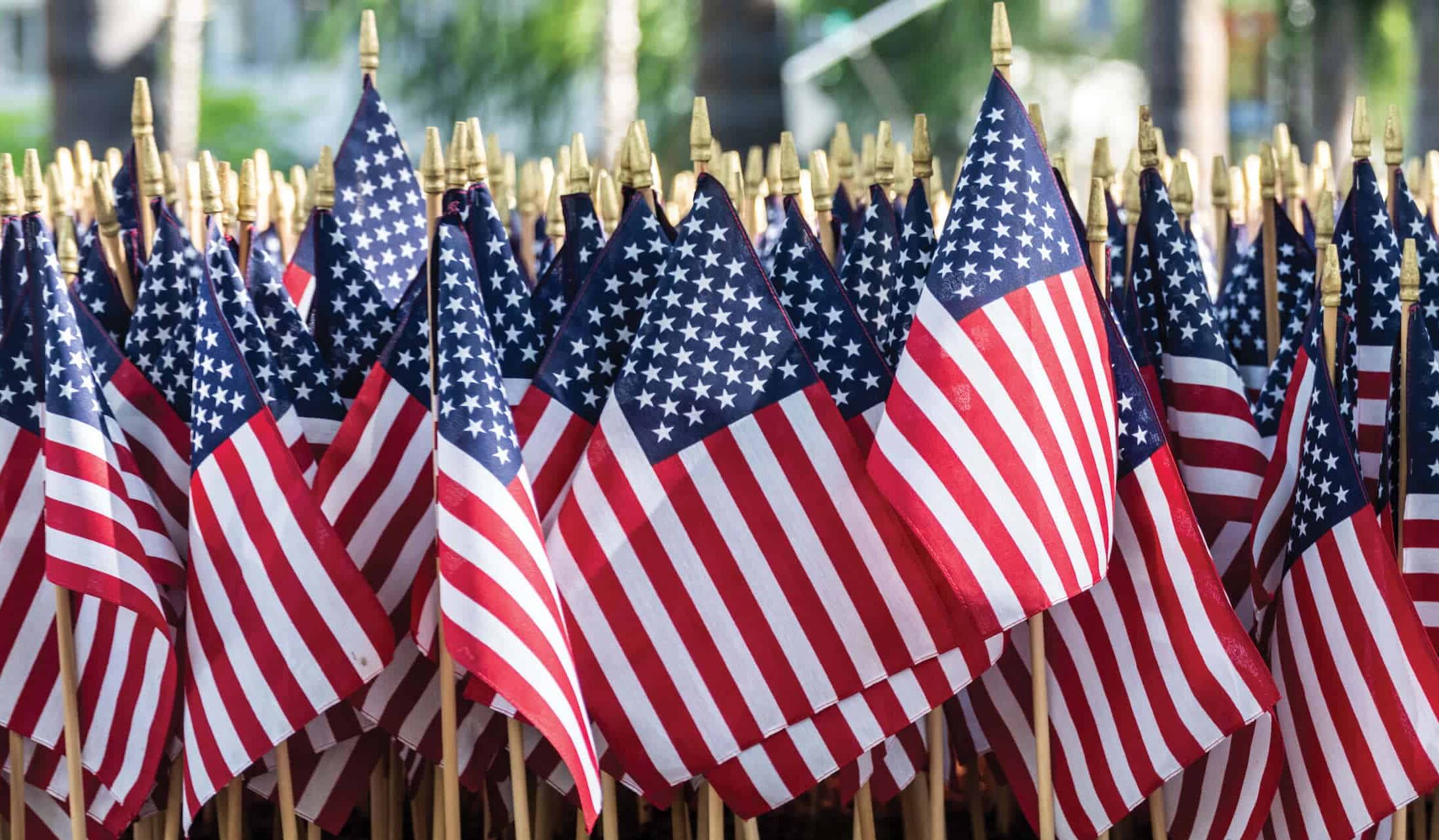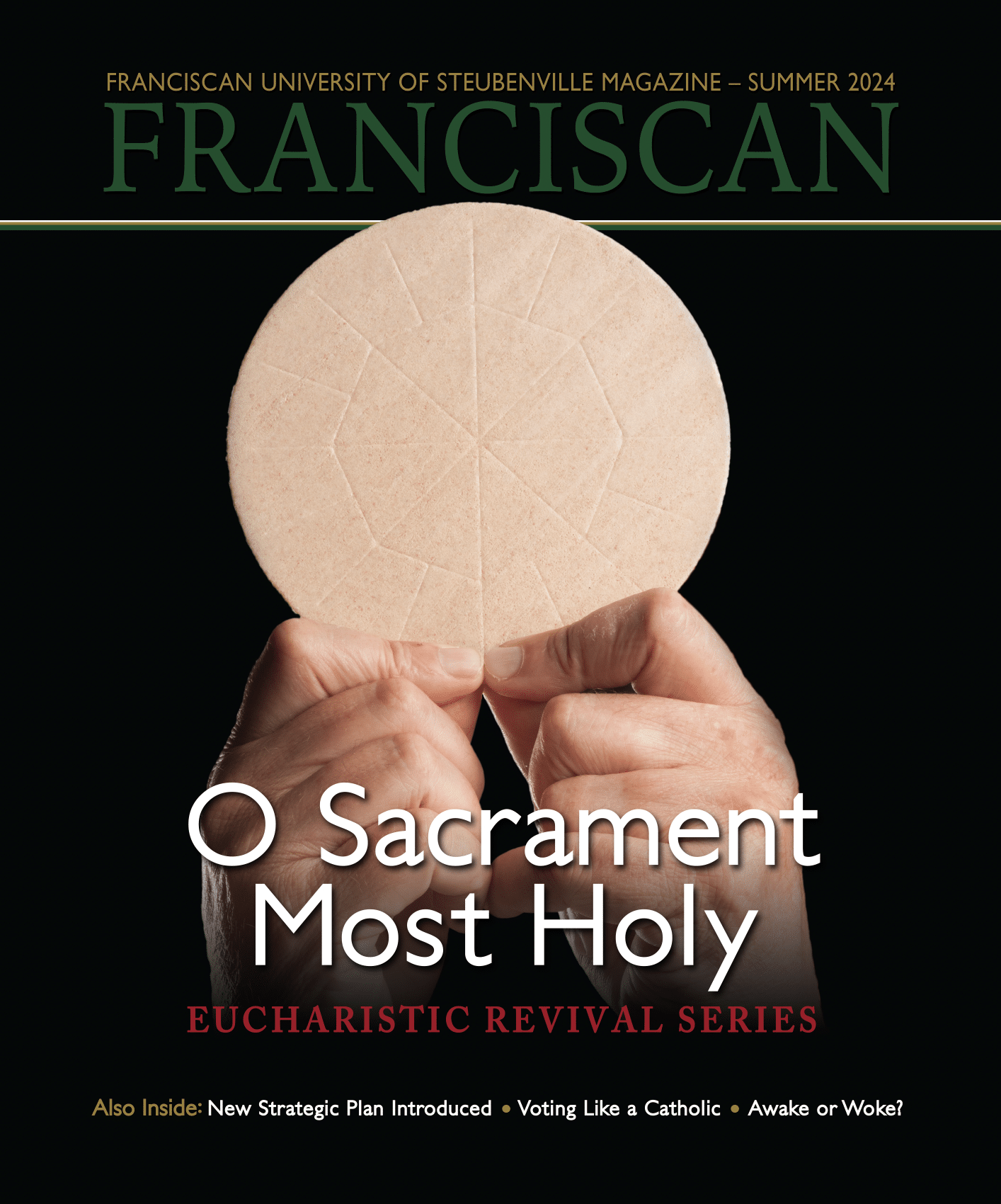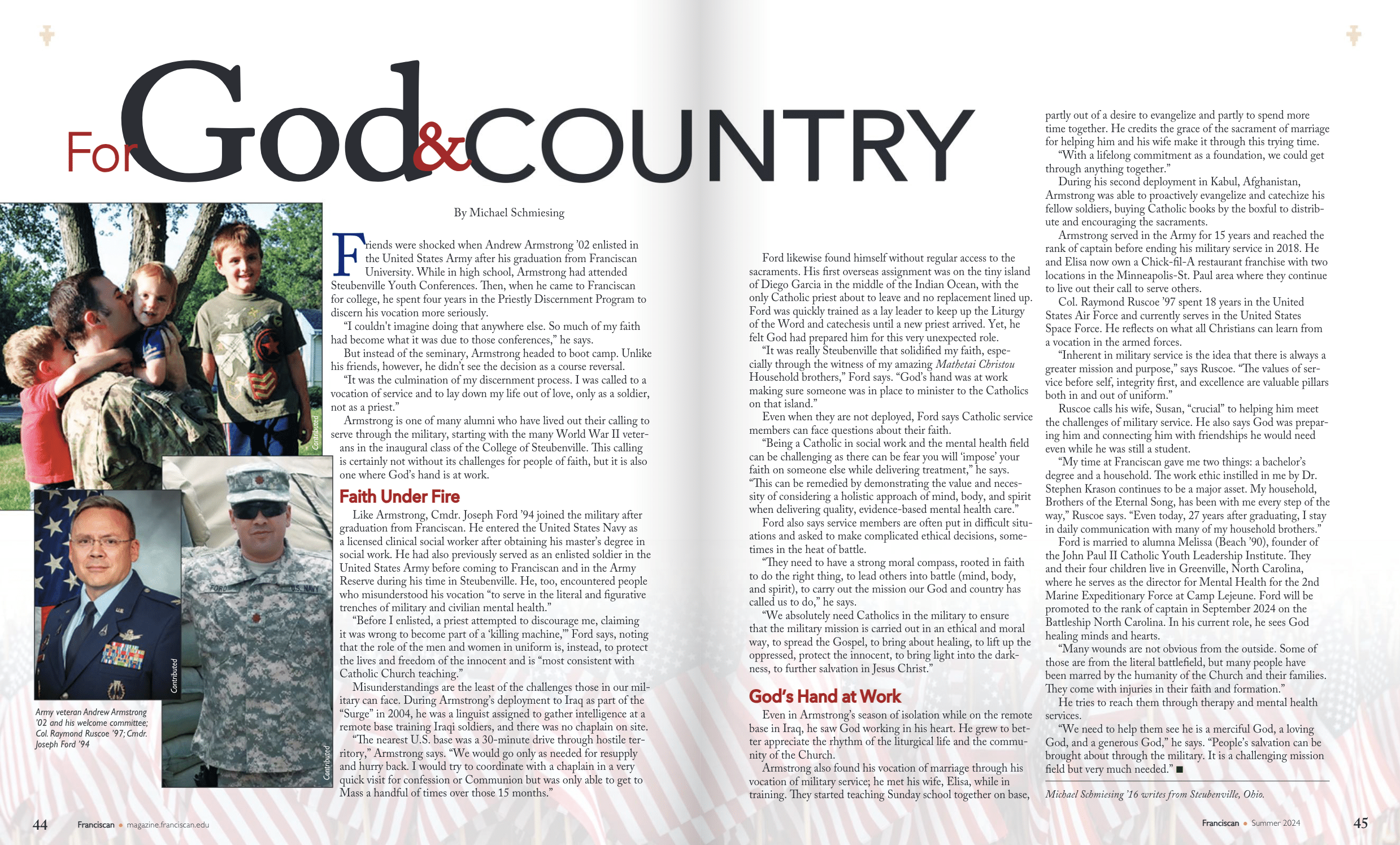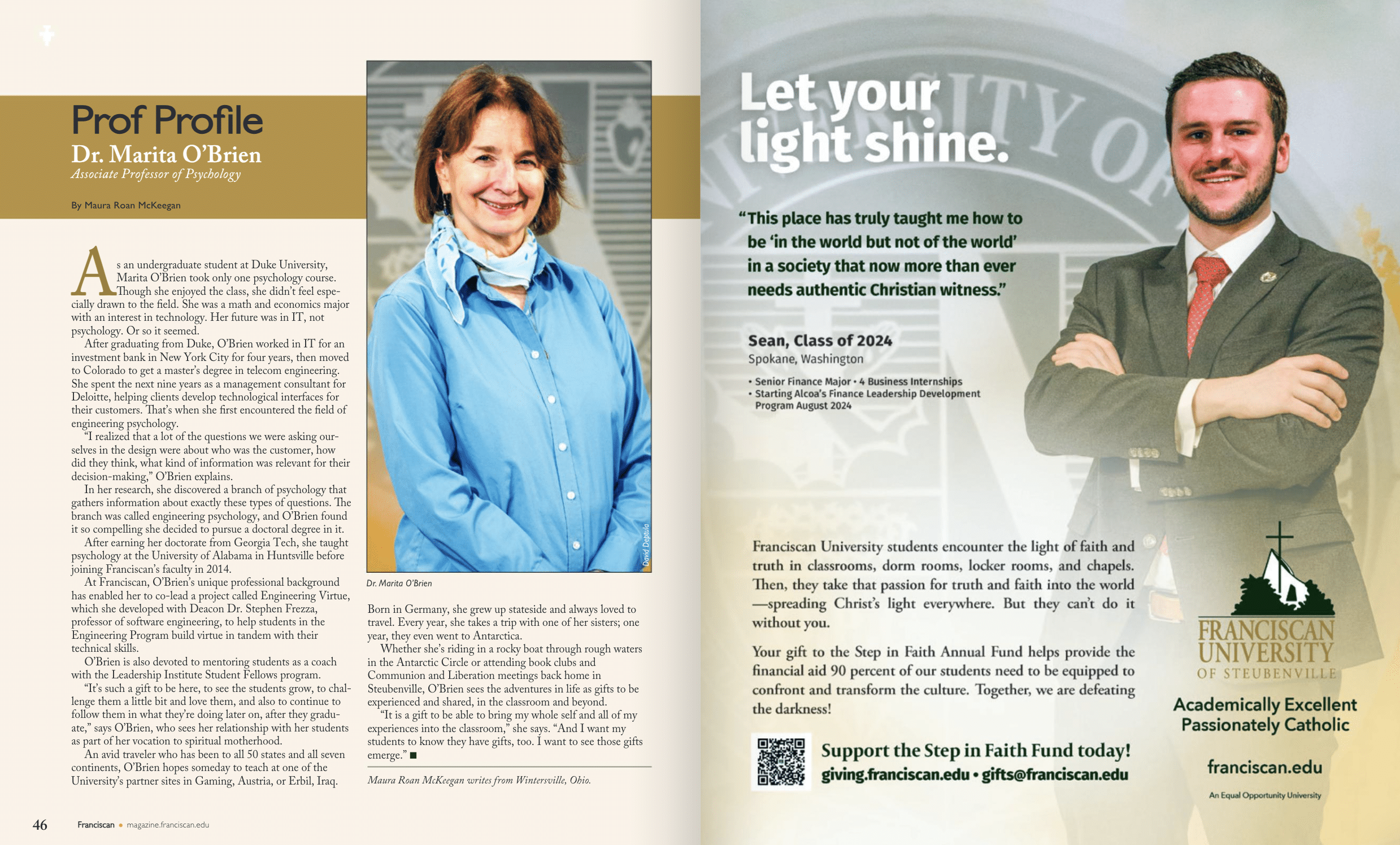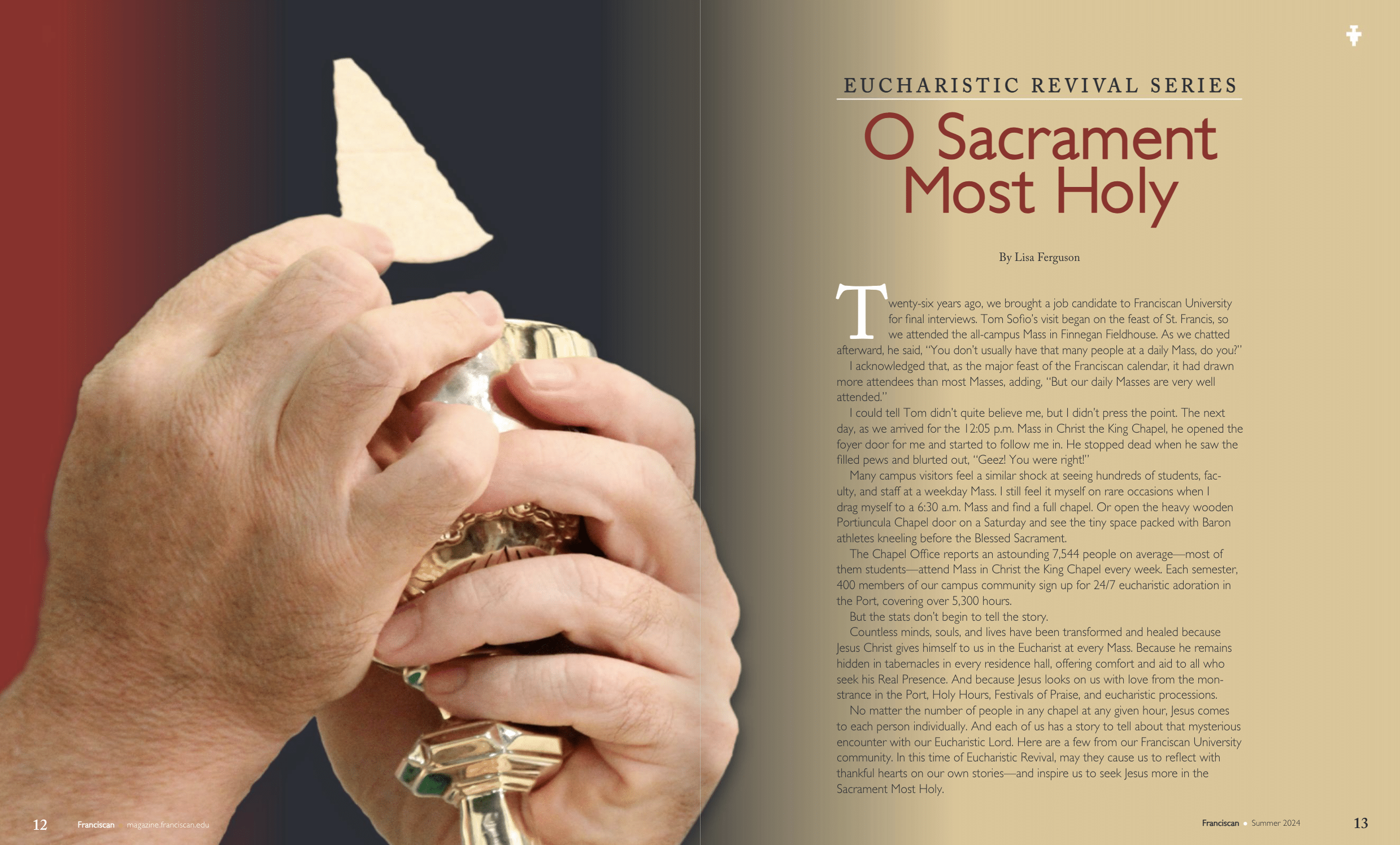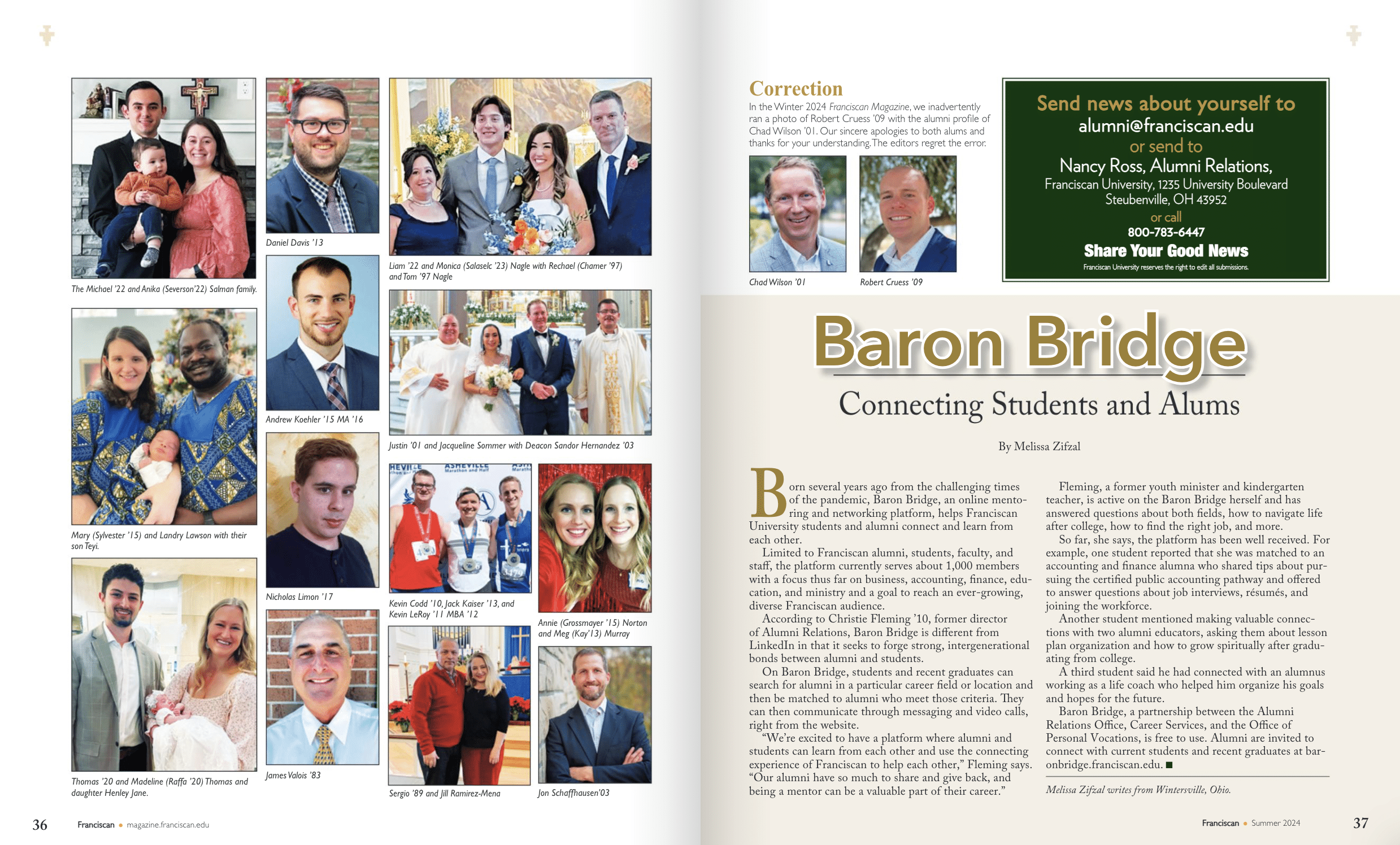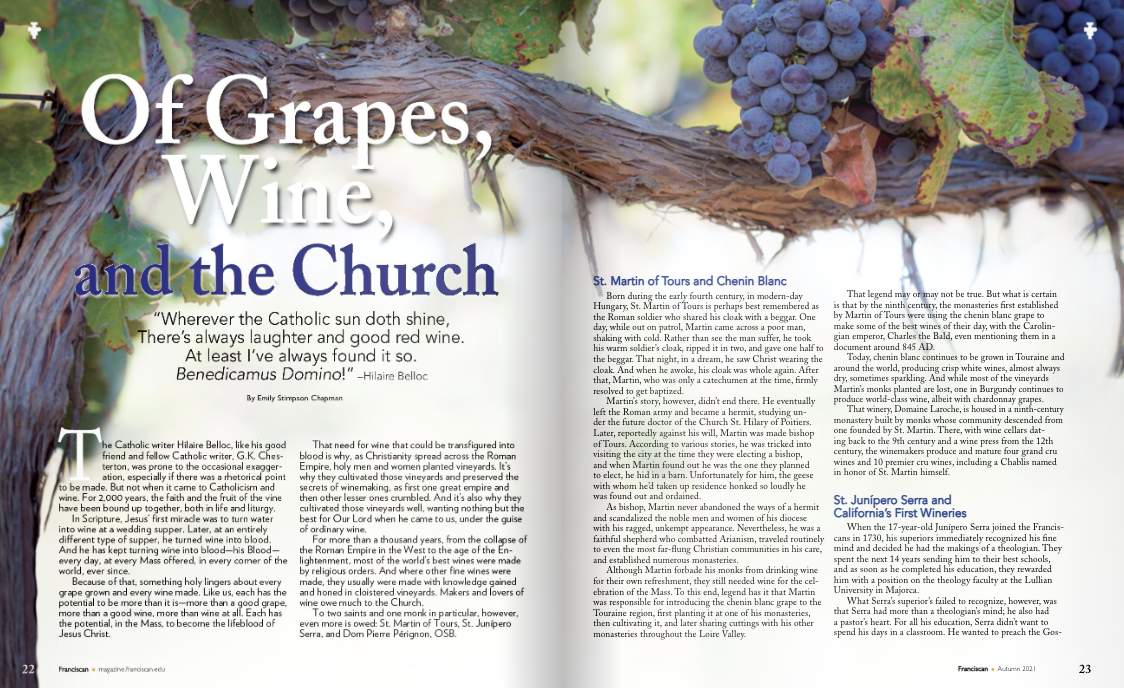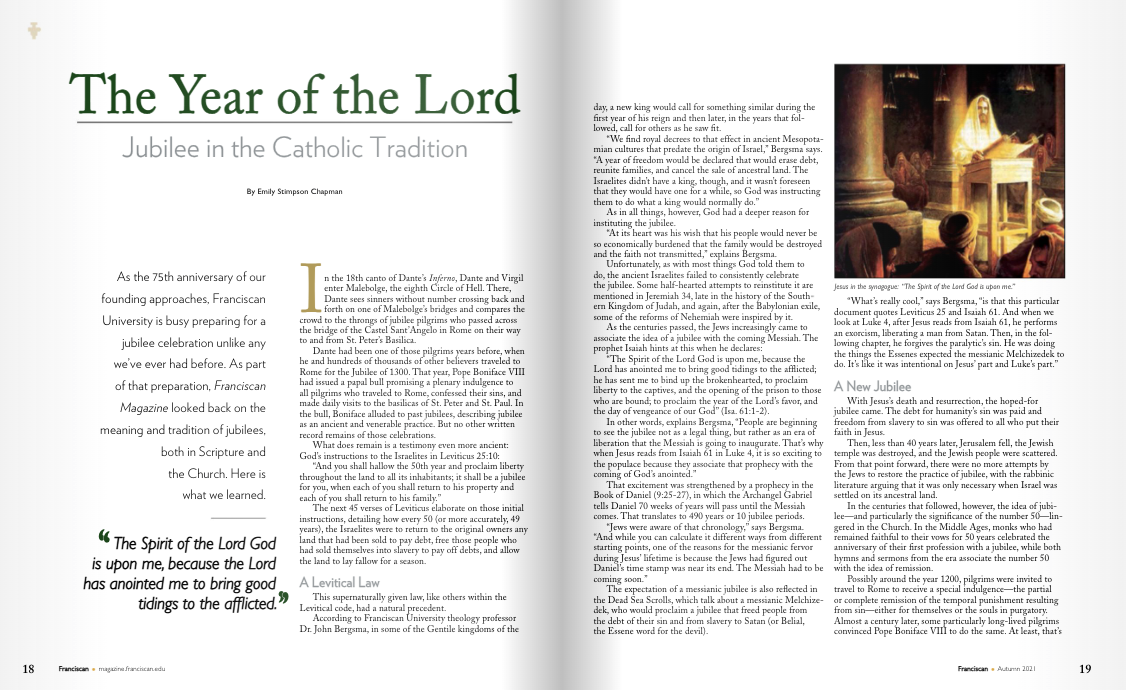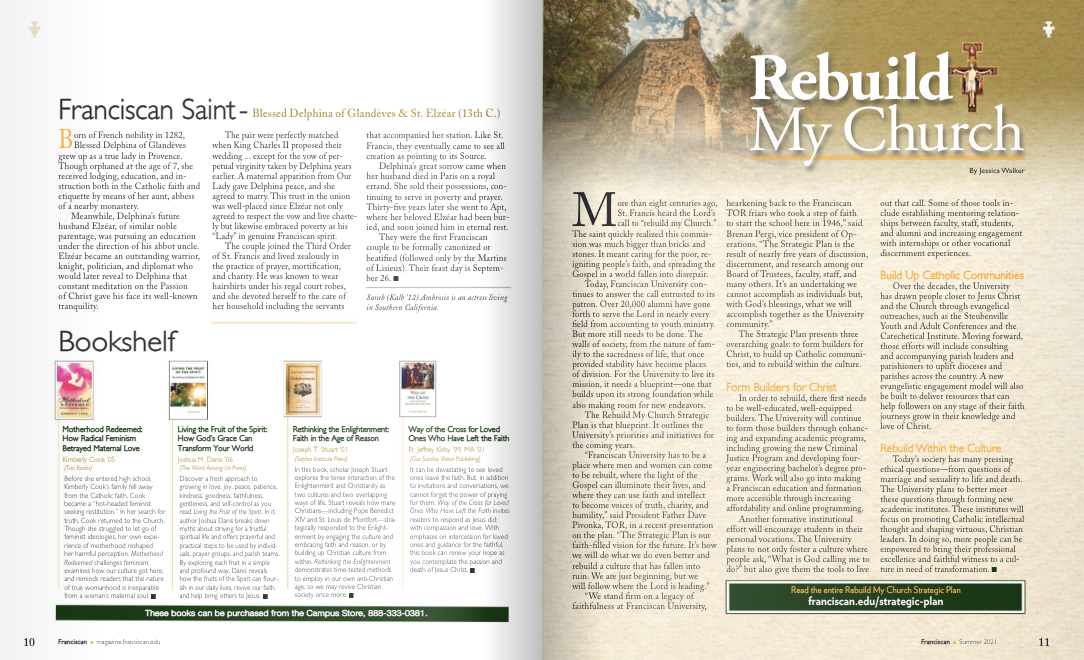Friends were shocked when Andrew Armstrong ’02 enlisted in the United States Army after his graduation from Franciscan University. While in high school, Armstrong had attended Steubenville Youth Conferences. Then, when he came to Franciscan for college, he spent four years in the Priestly Discernment Program to discern his vocation more seriously.
“I couldn’t imagine doing that anywhere else. So much of my faith had become what it was due to those conferences,” he says.
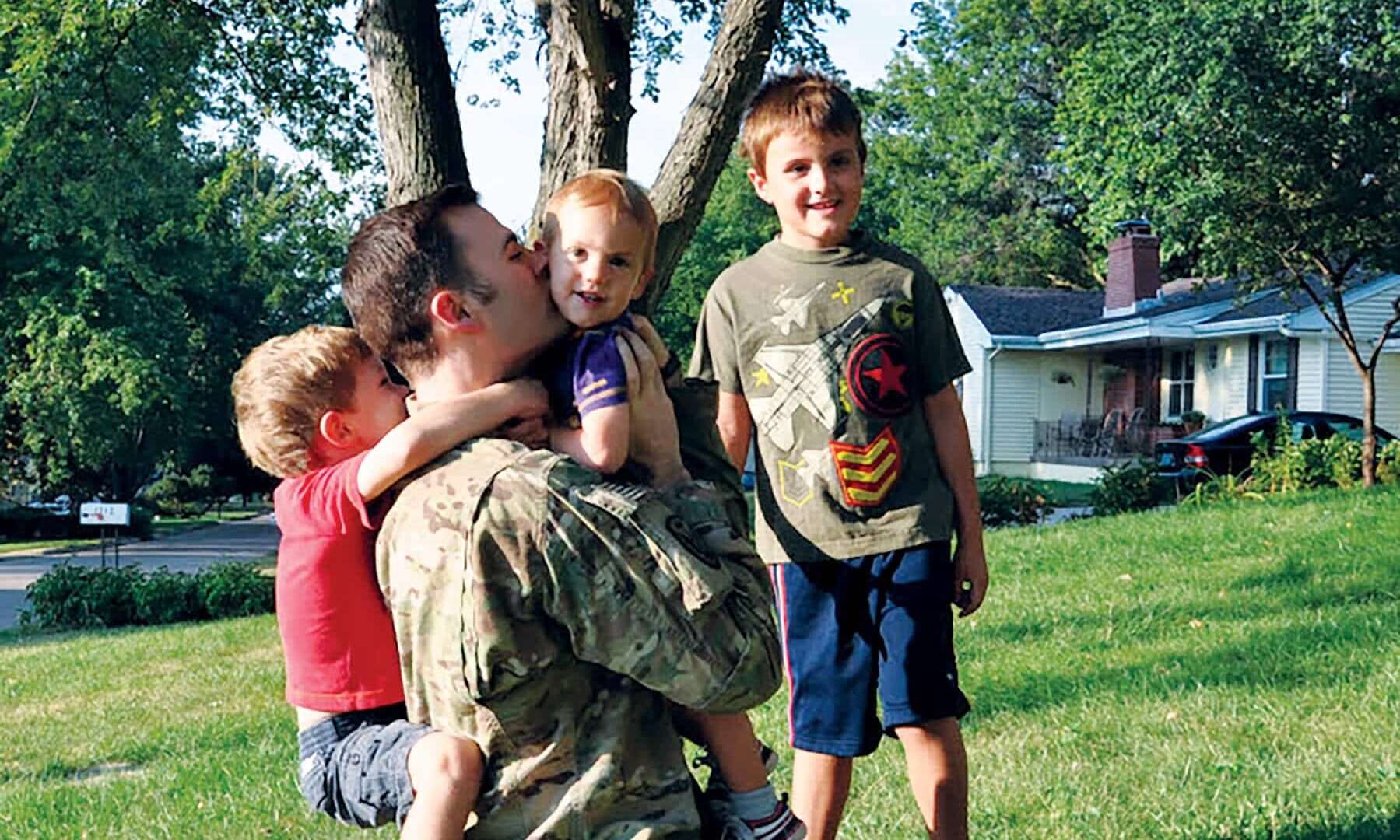
Army veteran Andrew Armstrong ’02 and his welcome committee
But instead of the seminary, Armstrong headed to boot camp. Unlike his friends, however, he didn’t see the decision as a course reversal.
“It was the culmination of my discernment process. I was called to a vocation of service and to lay down my life out of love, only as a soldier, not as a priest.”
Armstrong is one of many alumni who have lived out their calling to serve through the military, starting with the many World War II veterans in the inaugural class of the College of Steubenville. This calling is certainly not without its challenges for people of faith, but it is also one where God’s hand is at work.
Faith Under Fire
Like Armstrong, Cmdr. Joseph Ford ’94 joined the military after graduation from Franciscan. He entered the United States Navy as a licensed clinical social worker after obtaining his master’s degree in social work. He had also previously served as an enlisted soldier in the United States Army before coming to Franciscan and in the Army Reserve during his time in Steubenville. He, too, encountered people who misunderstood his vocation “to serve in the literal and figurative trenches of military and civilian mental health.”
“Before I enlisted, a priest attempted to discourage me, claiming it was wrong to become part of a ‘killing machine,’” Ford says, noting that the role of the men and women in uniform is, instead, to protect the lives and freedom of the innocent and is “most consistent with Catholic Church teaching.”
Misunderstandings are the least of the challenges those in our military can face. During Armstrong’s deployment to Iraq as part of the “Surge” in 2004, he was a linguist assigned to gather intelligence at a remote base training Iraqi soldiers, and there was no chaplain on site.
“The nearest U.S. base was a 30-minute drive through hostile territory,” Armstrong says. “We would go only as needed for resupply and hurry back. I would try to coordinate with a chaplain in a very quick visit for confession or Communion but was only able to get to Mass a handful of times over those 15 months.”
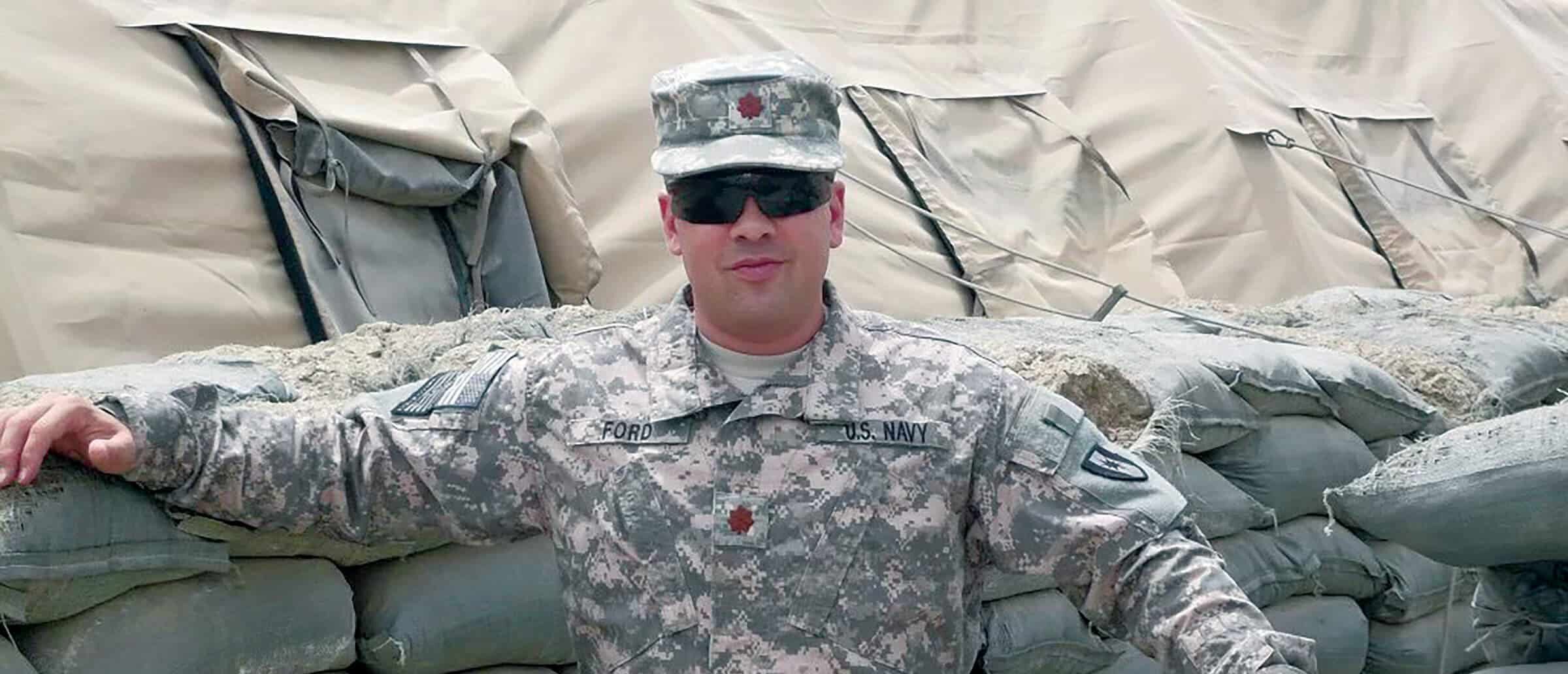
Cmdr. Joseph Ford ’94
Ford likewise found himself without regular access to the sacraments. His first overseas assignment was on the tiny island of Diego Garcia in the middle of the Indian Ocean, with the only Catholic priest about to leave and no replacement lined up. Ford was quickly trained as a lay leader to keep up the Liturgy of the Word and catechesis until a new priest arrived. Yet, he felt God had prepared him for this very unexpected role.
“It was really Steubenville that solidified my faith, especially through the witness of my amazing Mathetai Christou Household brothers,” Ford says. “God’s hand was at work making sure someone was in place to minister to the Catholics on that island.”
Even when they are not deployed, Ford says Catholic service members can face questions about their faith.
“Being a Catholic in social work and the mental health field can be challenging as there can be fear you will ‘impose’ your faith on someone else while delivering treatment,” he says. “This can be remedied by demonstrating the value and necessity of considering a holistic approach of mind, body, and spirit when delivering quality, evidence-based mental health care.”
Ford also says service members are often put in difficult situations and asked to make complicated ethical decisions, sometimes in the heat of battle.
“They need to have a strong moral compass, rooted in faith to do the right thing, to lead others into battle (mind, body, and spirit), to carry out the mission our God and country has called us to do,” he says.
“We absolutely need Catholics in the military to ensure that the military mission is carried out in an ethical and moral way, to spread the Gospel, to bring about healing, to lift up the oppressed, protect the innocent, to bring light into the darkness, to further salvation in Jesus Christ.”
God’s Hand at Work
Even in Armstrong’s season of isolation while on the remote base in Iraq, he saw God working in his heart. He grew to better appreciate the rhythm of the liturgical life and the community of the Church.
Armstrong also found his vocation of marriage through his vocation of military service; he met his wife, Elisa, while in training. They started teaching Sunday school together on base, partly out of a desire to evangelize and partly to spend more time together. He credits the grace of the sacrament of marriage for helping him and his wife make it through this trying time.
“With a lifelong commitment as a foundation, we could get through anything together.”
During his second deployment in Kabul, Afghanistan, Armstrong was able to proactively evangelize and catechize his fellow soldiers, buying Catholic books by the boxful to distribute and encouraging the sacraments.
Armstrong served in the Army for 15 years and reached the rank of captain before ending his military service in 2018. He and Elisa now own a Chick-fil-A restaurant franchise with two locations in the Minneapolis-St. Paul area where they continue to live out their call to serve others.
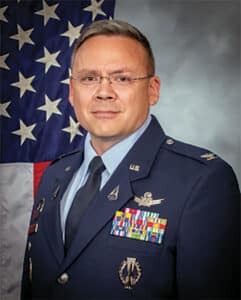
Col. Raymond Ruscoe ’97
Col. Raymond Ruscoe ’97 spent 18 years in the United States Air Force and currently serves in the United States Space Force. He reflects on what all Christians can learn from a vocation in the armed forces.
“Inherent in military service is the idea that there is always a greater mission and purpose,” says Ruscoe. “The values of service before self, integrity first, and excellence are valuable pillars both in and out of uniform.”
Ruscoe calls his wife, Susan, “crucial” to helping him meet the challenges of military service. He also says God was preparing him and connecting him with friendships he would need even while he was still a student.
“My time at Franciscan gave me two things: a bachelor’s degree and a household. The work ethic instilled in me by Dr. Stephen Krason continues to be a major asset. My household, Brothers of the Eternal Song, has been with me every step of the way,” Ruscoe says. “Even today, 27 years after graduating, I stay in daily communication with many of my household brothers.”
Ford is married to alumna Melissa (Beach ’90), founder of the John Paul II Catholic Youth Leadership Institute. They and their four children live in Greenville, North Carolina, where he serves as the director for Mental Health for the 2nd Marine Expeditionary Force at Camp Lejeune. Ford will be promoted to the rank of captain in September 2024 on the Battleship North Carolina. In his current role, he sees God healing minds and hearts.
“Many wounds are not obvious from the outside. Some of those are from the literal battlefield, but many people have been marred by the humanity of the Church and their families. They come with injuries in their faith and formation.”
He tries to reach them through therapy and mental health services.
“We need to help them see he is a merciful God, a loving God, and a generous God,” he says. “People’s salvation can be brought about through the military. It is a challenging mission field but very much needed.”
Michael Schmiesing ’16 writes from Steubenville, Ohio.



